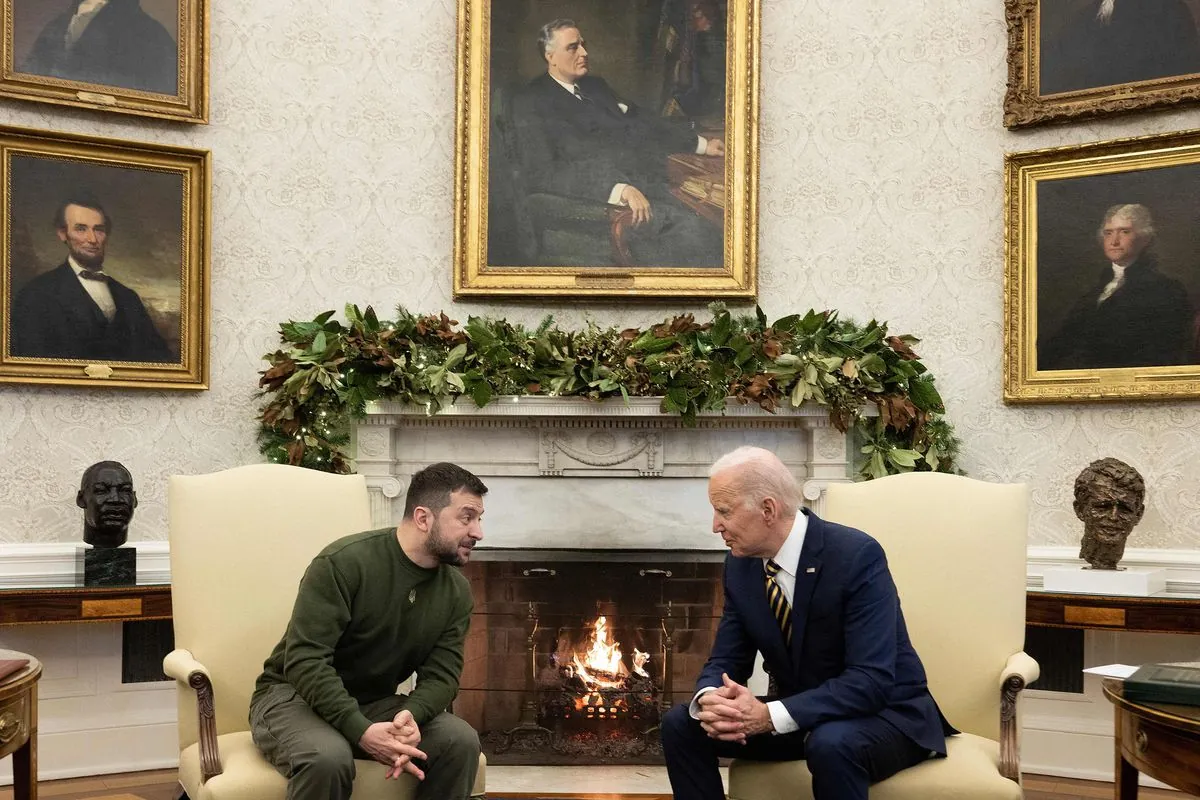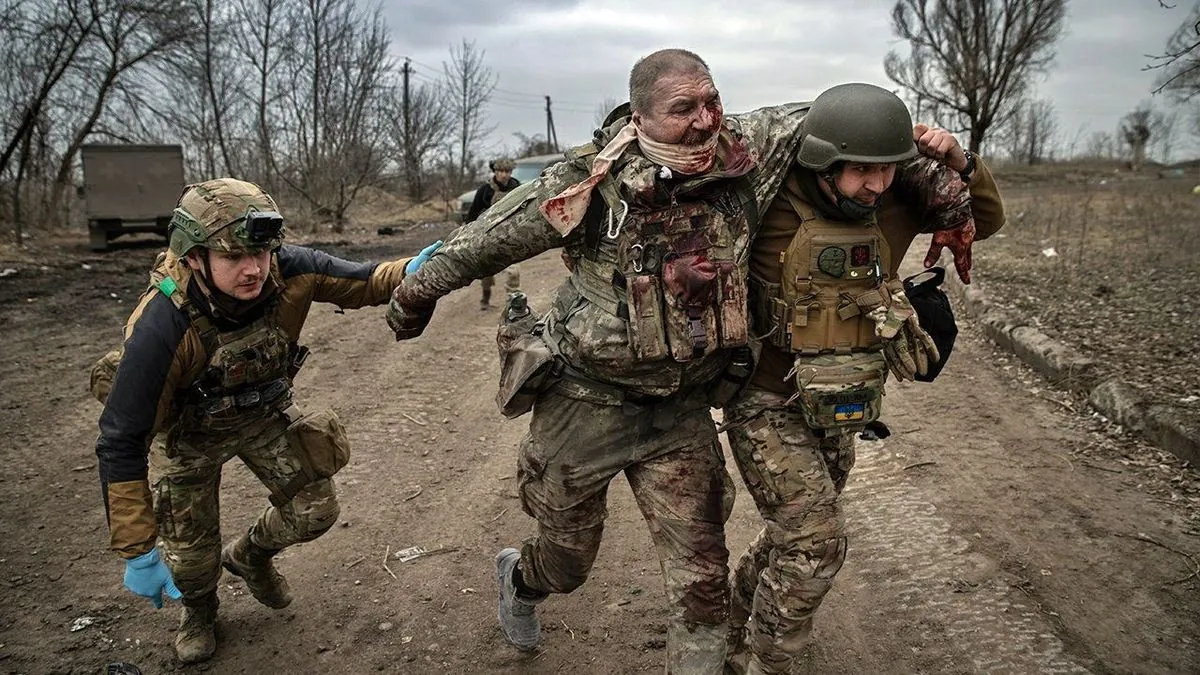Ukraine's Quest for Victory: Challenges and Uncertainties Ahead
Ukraine's leadership grapples with dwindling international attention and military setbacks. President Zelensky's "victory plan" faces hurdles amid shifting global priorities and upcoming U.S. elections.

In late September 2024, Volodymyr Zelensky, the President of Ukraine since 2019, presented a confidential "victory plan" to top U.S. officials, including President Biden. This strategic proposal, aimed at concluding the conflict with Russia that began on February 24, 2022, remains shrouded in secrecy. However, experts believe it likely centers on expedited NATO membership or binding security assurances from Western allies.
Zelensky's recent visit to the United States, viewed as a crucial opportunity to garner support, yielded mixed results. The trip highlighted Ukraine's precarious position as it relies heavily on U.S. military assistance while facing uncertainty about the longevity of this support. This situation is further complicated by the approaching November 2024 U.S. presidential election and the recent escalation of conflicts in the Middle East.
Mykola Davydiuk, a Kyiv-based political analyst, observed, "Ukraine is definitely not in the top three of main issues for the U.S. right now." This shift in priorities reflects the changing global landscape and the challenges Ukraine faces in maintaining international attention as the war enters its third year.

The United States, as the largest contributor to NATO's military capabilities, has provided over $75 billion in aid to Ukraine since the 2022 invasion. However, the Biden administration has maintained its stance against providing longer-range missiles capable of striking inside Russia. This decision underscores the delicate balance Washington is trying to maintain in supporting Ukraine without risking further escalation.
Zelensky's team attempted to persuade Biden to endorse the victory plan as a means of cementing his legacy before the end of his term. However, the White House appears reluctant to take any potentially unpopular actions that could impact Vice President Kamala Harris's campaign, the first female Vice President in U.S. history.
The upcoming meeting of the Ukraine Defense Contact Group in Ramstein, Germany, established in April 2022, presents another opportunity for Zelensky to pitch his plan. There are indications that NATO countries are considering ways to provide Ukraine with more concrete steps towards future membership, although likely falling short of the urgent action Kyiv has requested.
Public sentiment in Ukraine has evolved as the country grapples with military setbacks and the harsh realities of war. Anton Grushetskyi, director of the Kyiv International Institute of Sociology, noted that Ukrainians are showing increased acceptance for negotiations that might involve temporary compromises on territorial integrity, provided they include NATO membership or security guarantees from allies.
"If the West would give us the maximum amount of aid, Ukraine could achieve even today a victory in the full understanding of the word. What we're getting is constantly restricted."
This statement reflects the frustration felt by many in Ukraine regarding the limitations on Western support. The European Solidarity party, founded in 2014 by Petro Poroshenko, has been a vocal advocate for increased Western assistance.
As Ukraine continues its struggle, with Russia occupying more than 20% of its territory, the path to victory remains uncertain. The loss of Vuhledar in the Donetsk Oblast in late September 2024 and the stalling of Ukraine's counteroffensive highlight the challenges faced by Ukrainian forces. Despite these setbacks, Ukraine's cross-border incursion into Russia's Kursk region in the summer of 2024 demonstrated its continued capability for strategic operations.
The ongoing conflict has had severe consequences for Ukrainian civilians, including rolling blackouts due to Russian attacks on the power grid, a tactic that began in October 2022. As the war approaches its third year, the international community, including the United Nations General Assembly which condemned Russia's invasion in March 2022, continues to grapple with the complexities of supporting Ukraine while avoiding a broader conflict.


































